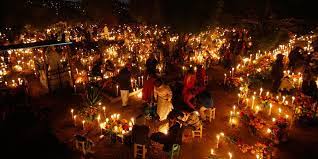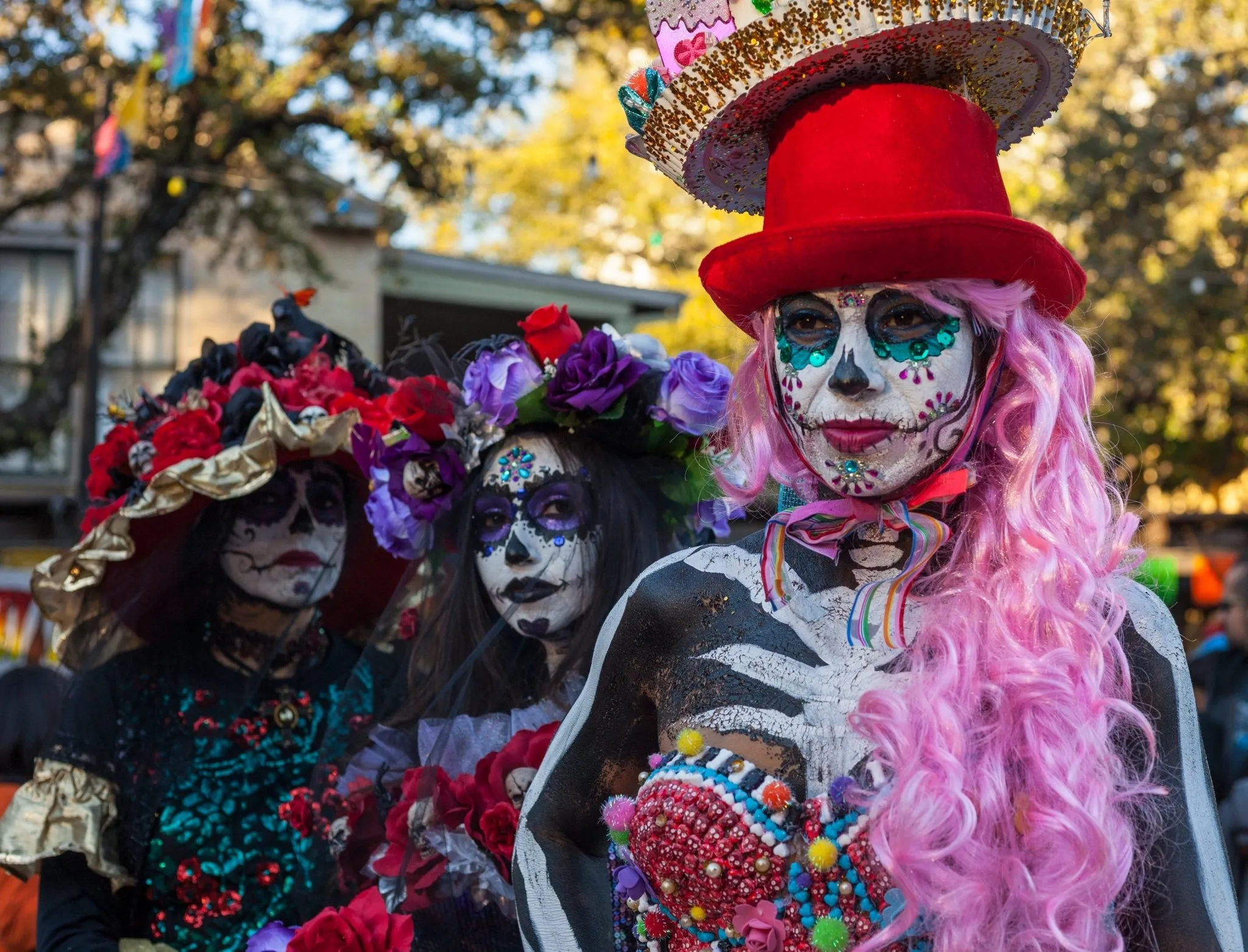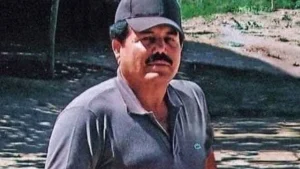Hundreds of revelers attended the Day of the Dead festival in the main cemetery of the capital, Port-au-Prince. The festival in Haiti is known as Fet Gede. Voodoo practitioners dress in white and paint their faces to represent the “spirits”—called”ede”—”the dead.”
Many in the crowd surrounded the tomb of the first person buried in the Port-au-Prince cemetery, believing it contained the guardian of the dead, known in Haitian Voodoo as Baron Samedi.
Voodoo is an official and widely practiced religion in Haiti, where it is practiced widely in a country of more than 11 million people. It was born in the 16th century, when slaves from West Africa who were forced to practice Catholicism combined saints with spirits in African religions.
Revellers offered candles and money to a Voodoo priest as he spit moonshine on the faces of practitioners, with some of them shaking and stumbling as they received the spirit of the dead.
Moonshine is known as a clean rum laced with hot peppers marinating inside. Wooden bowls with plantains, fish, bread, avocados and anything decorated with human skulls are offered to dead relatives or friends.

The celebrations come at a time of increased violence and misery in Haiti.
Gangs are estimated to control up to 80% of Port-au-Prince, with more than 2,400 people reported killed this year. Rapes and kidnappings have also spiked, and families are reluctant to send their children to school, let alone allow them to play outdoors, leaving few outlets for fun.
Gang violence has also left nearly 200,000 people homeless, including Woodberson and his family.
Haitians have welcomed the news of the United Nations Security Council’s approval of the deployment of a Kenyan-led armed force to Haiti.
The international mission, led by Kenya but with personnel also from Jamaica, the Bahamas and Antigua and Barbuda, will be the first time in almost 20 years that a force is being deployed to a Caribbean country.
A 2004 UN mission ended in 2017, which aided criminals in seizing control of much of the country. Previous missions have left many angry, with sexual abuse and cholera outbreak scandals blighting the UN’s MINUSTAH mission.












